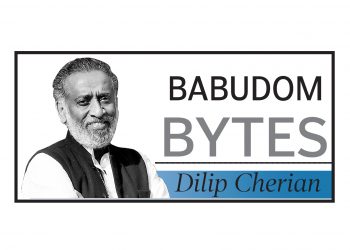Something curious happened in Delhi’s bureaucratic circles last week. The government announced the empanelment of 42 officers for Joint Secretary (JS) or JS-equivalent posts, and here’s the kicker—only 16 of them were IAS officers from the 2009 batch. That’s barely a fraction. Another six IAS officers made it under the “initially deferred” and “initially leftover” categories, but even with those numbers, the representation of the elite IAS cadre in this list seems… well, underwhelming.
What’s even more intriguing? Central Secretariat Service (CSS) officers appear to be taking up a significant chunk of the slots. This isn’t a one-off case either for those who have been tracking recent empanelment lists. They notice a pattern—fewer IAS officers making the cut at the JS level, while non-IAS officers, including those from the CSS and other central services, are steadily increasing their share.
Is this part of a deliberate shift in government strategy—perhaps a move to dilute the dominance of the IAS and distribute power more evenly among different services? Or is it just a function of more stringent performance reviews and a changing approach to empanelment?
Babu circles are abuzz with speculation. Some see this as a sign that the government is growing wary of the traditional IAS hegemony, while others argue that the service itself is failing to groom enough officers who meet the Centre’s expectations. Either way, one thing is clear: empanelment, once considered a natural progression for IAS officers, is no longer a given.
A timely reprieve?
In a well-timed move just ahead of Prime Minister Narendra Modi’s visit to Washington, DC, US President Donald Trump ordered the Department of Justice to halt prosecutions under the Foreign Corrupt Practices Act (FCPA). This could have far-reaching consequences for many global business leaders and companies caught in legal battles over alleged financial misconduct. From our point of view, at least one particular Indian tycoon, who has been in the crosshairs of US authorities, may breathe a sigh of relief. But more importantly, babus’ hopes are high that they may once again get bouquets with Stars and Stripes as ribbons for favours delivered.
The FCPA, since 1977, prohibited American companies and individuals from bribing foreign officials to secure business deals. Over the years, it ensnared numerous corporate leaders worldwide, including those from India, accused of engaging in financial transactions that allegedly crossed legal boundaries. The US Justice Department’s scrutiny of a major Indian business house—one that has built its empire across infrastructure, energy, and ports—has raised concerns about legal entanglements affecting global investments.
Also Read: Centre orders probe into alleged irregularities in Kejriwal’s ‘Sheesh Mahal’
Critics of FCPA have long argued that strategic government contracts need bribology as much as business acumen. The fear of US legal actions have posed a serious threat to US companies and sprawling conglomerates with international operations.
With Trump’s executive order effectively pausing FCPA prosecutions, the potential impact on ongoing cases is significant. This policy shift may lead to a reassessment of pending investigations, possibly resulting in dropped charges or settlements that are more favourable to the accused. For Indian businesses expanding abroad, this also signals a shift in how US authorities handle corruption-related cases involving foreign entities.
However, global watchdogs argue that weakening anti-corruption enforcement will embolden corporate malpractice and erode global ethical standards. For India, where regulators are already battling accusations of selective scrutiny, this development may further complicate efforts to uphold fair competition in high-stakes industries.
With legal uncertainties possibly easing, the stage is set for babus to prosper and a recalibration of international business strategy by many companies.
Too many hats, too few hands
Gujarat’s bureaucratic chessboard has been reshuffled yet again, with the transfer of over 68 senior officials, including nine district collectors and 16 DDOs. Such large-scale moves are often framed as administrative efficiency drives, but this exercise raises pertinent questions about governance, priorities, and stability.
The appointment of Pankaj Joshi as Chief Secretary appears to have triggered this overhaul. His relinquished responsibilities have been redistributed, while for the first time, the Ahmedabad Collector and Municipal Commissioner were transferred simultaneously—a decision that could signal deeper political recalibrations.
Some reassignments stand out. Ashwani Kumar, already helming Urban Development, now also oversees Ports & Transport. T Natarajan, a key figure in Finance, takes charge of Gujarat Narmada Valley Fertilisers Company. While these changes suggest attempts to leverage expertise, they also expose an ongoing issue—senior officials continue to juggle multiple crucial roles. At least 15 still hold additional responsibilities across essential sectors like Home Affairs, Ports & Shipping, and Technical Education.
Meanwhile, the IPS cadre remains in flux. Over a dozen officers are doubling up on roles, and critical posts like Gujarat’s Anti-Corruption Bureau Chief and CID Crime Branch head remain unfilled. The policing structure appears increasingly overstretched, raising concerns over law enforcement effectiveness.
With another round of reshuffles expected post-Budget, and the Model Code of Conduct for local body elections temporarily stalling major changes, the question remains: will this reshuffle bring tangible improvements, or is it just another game of bureaucratic musical chairs?
By Dilip Cherian
